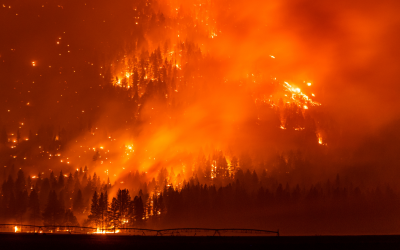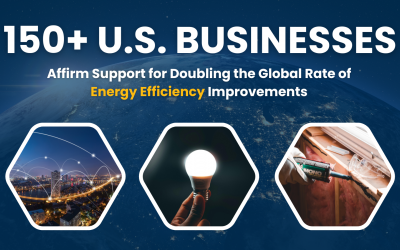Just Three Years Left of Carbon Budget to Stay Below 1.5°C, Scientists Warn
The world is rapidly running out of time to avoid surpassing the internationally agreed 1.5°C global warming limit, with latest research showing that current emission levels could exhaust the remaining carbon budget within just three years.

According to the latest annual climate assessment by more than 60 leading scientists, analysing around 10 different indicators including sea-level rise and global land precipitation, the remaining carbon budget has dropped to just 130 billion tonnes. This is the amount of CO₂ humanity can emit whilst still having a reasonable chance of staying below 1.5°C. If today’s emissions continue at their current highs of around 40 billion tonnes a year, that budget could be used up in as little as three years.
For a higher level of certainty (a 66% chance of staying below 1.5°C), only 80 billion tonnes remain. This gives the world roughly two years at current emissions levels, making the target even more difficult. Time lags within the climate system mean the 1.5°C limit, the formal breach of the Paris Agreement requiring a multi-year average above 1.5°C, would then be passed a few years later, the scientists said.
The report, published in Earth System Science Data, confirms that 2024 was the hottest year on record, with average global temperatures 1.52°C above pre-industrial levels. Of this, 1.36°C can be attributed to human activity. It is a stark indication of how close the world is to crossing a critical threshold.
Scientists warned that every increment of warming heightens the risk of extreme weather, rising sea levels, and irreversible ecosystem damage. Sea level rise has already doubled in pace over the past decade, reaching 4mm per year, driven by melting ice sheets and warming oceans. Oceans now absorb around 91% of excess heat trapped by greenhouse gases.
Despite global pledges to transition away from fossil fuels, emissions continue to rise, fuelled by growing energy demand, continued reliance on coal, oil, and gas, and deforestation amongst other things.
The authors of the report stress that urgent, far-reaching climate action is still possible and essential to limit future damage. With COP30 on the horizon in November, scientists are calling for governments to deliver stronger commitments and faster implementation of emission reductions.
Professor Piers Forster, Director of the Priestley Centre for Climate Futures at the University of Leeds and lead author of the study, said: “Our third annual edition of Indicators of Global Climate Change shows that both warming levels and rates of warming are unprecedented. Continued record-high emissions of greenhouse gases mean more of us are experiencing unsafe levels of climate impacts. Temperatures have risen year-on-year since the last IPCC report in 2021, highlighting how climate policies and pace of climate action are not keeping up with what’s needed to address the ever-growing impacts.”
Read the full study here
At the Climate Innovation Forum on Wednesday 25th June, Professor Piers Forster will be delivering a keynote speech from 13:55 – 14:05 BST titled, ‘UK’s progress in reducing emissions: unveiling the CCC’s 2025 Net Zero Progress Report’. Register here now.






